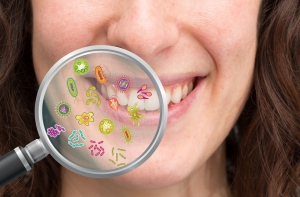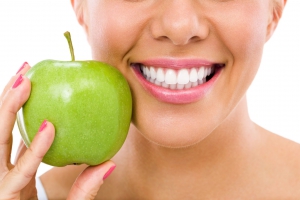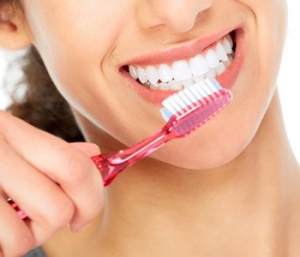Tips to Improve Your Dental and Oral Health
Dental health is a vital part of overall health. But unfortunately, our teeth and gums are more susceptible to tooth decay, gum disease, and other oral health problems as we age. This blog will provide tips on preventing dental and oral health problems, as well as the best treatments for common tooth-related issues. Following these tips and advice can stay healthy and smile teeth-wide!
Prevention of Dental and Oral Health Problems
It’s essential to keep your dental and oral health in check to prevent more severe problems down the line. See your dentist as soon as possible when you have a toothache or other dental pain. Make sure you get regular screenings for gum disease, which can lead to more serious dental problems such as tooth loss. Brushing your teeth twice a day is an essential part of dental hygiene, and flossing is one of the most effective ways to remove plaque and bacteria. Lastly, don’t forget about dietary habits – eating a balanced diet can help keep your teeth and gums healthy and strong.
Treatment Methods for Dental and Oral Health Problems
Dental problems can be frustrating and lead to a loss of oral health. However, many treatment methods are available to improve dental and oral health problems. Some of the most common treatments include braces, dental implants, and dentures. Oral surgery is also an option for repairing damage caused by tooth decay or other dental problems. Make sure to find a dentist who offers a high level of service and can help you achieve your desired results. If you’re looking for more information on oral health, dental care, and treatment methods, consult a health professional like a dentist or physician.
Causes and Risk Factors for Dental and Oral Health Problems
 If you’re concerned about your dental and oral health, you must know the many causes and risk factors. Some of the most common reasons people suffer from tooth decay, gum disease, and other oral health problems are smoking, a diet high in sugar, processed foods, and food additives, and regularly using over-the-counter mouthwashes or medications containing caffeine. To improve your oral health, you must change your lifestyle. Be aware of the risks and take steps to avoid them. By doing so, you’ll improve your dental and oral health and overall health!
If you’re concerned about your dental and oral health, you must know the many causes and risk factors. Some of the most common reasons people suffer from tooth decay, gum disease, and other oral health problems are smoking, a diet high in sugar, processed foods, and food additives, and regularly using over-the-counter mouthwashes or medications containing caffeine. To improve your oral health, you must change your lifestyle. Be aware of the risks and take steps to avoid them. By doing so, you’ll improve your dental and oral health and overall health!
Types of Dental and Oral Health Problems
Dentistry is one of the most critical healthcare fields, and oral health is one of the essential aspects of oral healthcare. Of course, no one wants to deal with tooth decay and dental problems, but the good news is that you can take various steps to prevent gum disease and improve your oral health. Brushing and flossing regularly are essential for gum disease, as is using fluoride mouthwash and avoiding tobacco products. If you develop gum disease, see your dentist as soon as possible for treatment! Gum disease is the most common type of dental and oral health problem in the United States, and proper oral hygiene is the key to preventing it. By taking these simple steps, you can keep your oral health in good shape and enjoy good dental and oral health for years to come!
Ways to improve oral hygiene at home
Opting for good oral hygiene is one of the most important steps to improve your dental and oral health. Make sure to brush your teeth twice daily – morning and night – with fluoride toothpaste. In addition, limiting sugary drinks and eating plenty of nutritious foods help keep your oral health in check. If you experience any pain or bleeding during or after eating, contact your dentist straight away! By following these tips, you’ll be on your way to a healthy mouth and beautiful teeth.
How to eat for better dental health
 Dental and oral health is essential, and caring for them is vital. By visiting your dentist regularly, you can prevent tooth decay and other dental problems in the future. To help you out, avoid sugary foods and drinks, fluoride-free toothpaste, and brush twice a day. In addition, make sure to include plenty of fruits, vegetables, and whole grains in your diet. Finally, keep flossing and visiting your dentist for regular checkups and cleanings.
Dental and oral health is essential, and caring for them is vital. By visiting your dentist regularly, you can prevent tooth decay and other dental problems in the future. To help you out, avoid sugary foods and drinks, fluoride-free toothpaste, and brush twice a day. In addition, make sure to include plenty of fruits, vegetables, and whole grains in your diet. Finally, keep flossing and visiting your dentist for regular checkups and cleanings.
Dental and oral health is essential for maintaining good oral hygiene and healthy teeth. However, dentistry can be expensive, and some treatments can be challenging to afford. That’s why it’s essential to know your coverage and to research potential providers before making an appointment. Remember these tips when seeking professional help:
A variety of more advanced treatments available can improve the health and appearance of your teeth. For example, tooth whitening and gum health restoration can help you achieve a brighter smile and more muscular gum tissue. If you experience dental or oral problems, don’t hesitate to seek professional help. You’ll be glad you did!
How to brush and floss your teeth
 Oral health is vitally important, and brushing and flossing your teeth daily is one of the simplest ways to maintain good oral health. Here are a few tips to help make brushing and flossing a breeze: – Make brushing and flossing part of your morning routine. – Make sure to brush the front and back of your teeth, and use a soft-bristled brush to reach all the corners of your teeth and gums. – Floss once daily – around each tooth – using gentle, long strokes.
Oral health is vitally important, and brushing and flossing your teeth daily is one of the simplest ways to maintain good oral health. Here are a few tips to help make brushing and flossing a breeze: – Make brushing and flossing part of your morning routine. – Make sure to brush the front and back of your teeth, and use a soft-bristled brush to reach all the corners of your teeth and gums. – Floss once daily – around each tooth – using gentle, long strokes.
What are the signs of dental disease?
If you notice that your teeth are not as strong and healthy looking as they used to be, it may be time to check up. Tooth decay can start with small lesions on the enamel, which will eventually lead to cavities. Cavities can cause tooth loss if left untreated. To monitor your dental health, brush twice daily using fluoride toothpaste, floss regularly, and visit a dentist every six months for a checkup. Consultation is always the best option if you notice any changes or problems with your teeth.
What are some everyday oral care products that dentists recommend for their patients?
Here are some of the most popular oral care products dentists recommend for their patients: 1. Fluoride toothpaste: Dentists often recommend fluoride toothpaste as it helps to reduce dental decay and gum disease and also has an anti-caries effect. 2. Mouthwash: Mouthwash is often recommended by dentists as it helps to remove bacteria and plaque from the teeth and gums. It is also acidic, so it can help to clean teeth and gums properly. 3. Flossing is another critical oral hygiene habit that dentists often recommend for their patients. Flossing helps remove plaque and debris between your teeth and gum line, which in turn can help keep your teeth healthy and gum health improved.
How can I prevent tooth decay?
Tooth decay is one of the most common oral health problems. The good news is that there are many ways to prevent it. One of the best ways to prevent tooth decay is by brushing your teeth twice a day with fluoride toothpaste and using water at room temperature or slightly warm. Fluoride toothpaste helps to fight tooth decay by inhibiting the growth of oral bacteria. In addition, make sure to avoid consuming sugary drinks and foods, eating rotten fruits and vegetables, smoking, chewing tobacco, and using rubber bands around your gums. You get the point! All of these activities can lead to tooth decay. Lastly, make regular dental visits to keep your teeth clean and healthy.
Is it okay to floss regularly even if I don’t have any cavities?
It’s okay to floss regularly, even if you don’t have any cavities. This is because flossing removes harmful food debris that can accumulate on the surface of teeth. Not flossing can lead to tooth decay. In addition, regular flossing helps remove plaque and bacteria between your teeth and gums – keeping your teeth clean and healthy.
How do I know if my teeth need a dental visit?
Here are a few simple ways to determine if your teeth need a dental visit. For example, you can self-check by looking for any toothaches or problems with oral hygiene. If you find any issues, it’s time for a dentist checkup. The Dental Health Index is also an excellent way to assess oral health. It’s an online survey that helps you learn more about your oral health and how to improve it. If you want the most accurate assessment of your teeth, then you should schedule an appointment with your dentist. During this appointment, they will use various dental tools and technologies to get a complete picture of what’s wrong and how to fix it.
Conclusion
Oral health is essential for good overall health, and it’s important to take care of your oral health to stay healthy. In this blog, we discuss different prevention methods, treatment methods, and topics that are relevant to dental and oral health. Make sure to read through the blog to gain valuable tips on how to improve your oral health.



